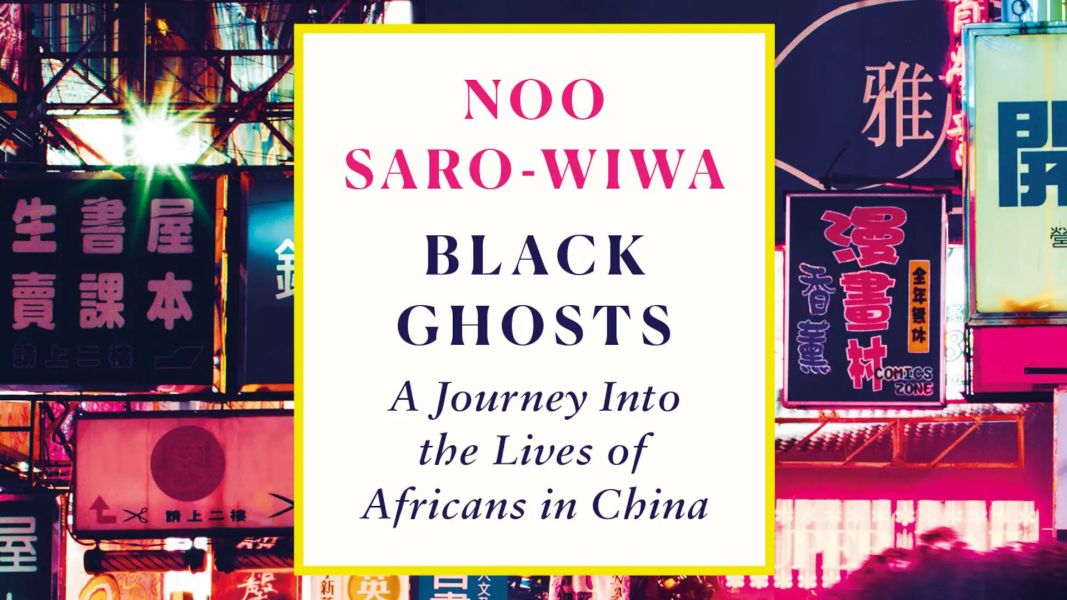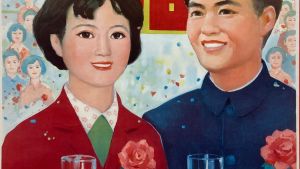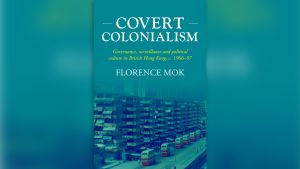
Black Ghosts: A Conversation with Noo Saro-Wiwa
In Black Ghosts: A Journey into the Lives of Africans in China (Canongate Books, 2023), Noo Saro-Wiwa investigates the experiences of economic migrants from Africa in today’s China. While the countries of Europe and North America and others in the Global North have established substantial roadblocks to commerce with African nations and African people, China has emerged as a land of opportunity and has become a hub of trade for Africans from diverse backgrounds. China is, however, also a place where Africans face racism, prejudice, and discrimination in a variety of ways. Through a series of encounters with different African migrants, Saro-Wiwa illuminates the human entanglements that emerge from this intersection of cultures.
Qidi Feng and Fred Lai: You chose as your title ‘Black Ghosts’—a term with racist and discriminatory undertones. Could you elaborate on the reasons for the selection of this title? More specifically, our question draws on the multiplicity of foreignness and alienness captured by the term, and how it may come through in the book. The term evokes an image of wandering ghosts in a foreign land. Yet, it also denotes a sensation of estrangement and ‘errantry’ that could be seen as generative. In some cases, you also became the ‘black ghost’, especially when you recall travelling to other provinces where the sight of African people is rare. How does focusing on the multiplicity of ‘black ghost’ experiences further our understanding of Africans living in China?
Noo Saro-Wiwa: Although ‘black ghosts’ is a derogatory term in Chinese, the literal English translation, which has a non-pejorative meaning, is what interests me. ‘Black ghosts’ aptly describes the weak foothold that Africans have in China—the fact that someone can still be on a one-year visa despite living in China for a decade, having a Chinese spouse and half-Chinese children. There is a precariousness to their lives. Also, during the research for the book, I heard that the Chinese authorities sometimes turn a blind eye to African drug dealing providing the consumers are also African. This bespoke application of laws adds to the sense that Africans (and other foreigners) are treated very differently.
QF and FL: I was reading your book at Tongtong Mall in Sanyuanli, Guangzhou, while doing fieldwork, and an Igbo interlocuter named Mercy came to chat with me. She flipped through it briefly, before taking a phone call and heading to another mall for her shoe accessories order. On our way back to Tongtong, at the mention of the book, she asked me loudly: ‘Why do Chinese hate blacks so much?’ She thought the hatred was caused by Chinese people’s ignorance about people elsewhere, even though I was not entirely sure that was right (or wrong). ‘China never colonised Africa, but this country is still giving us mafan [trouble],’ she added. One way that another informant dealt with such hatred and mafan was to escape from Guangzhou and go to Shanghai every weekend. As my informant explained: ‘Because here, I am a black trader. But in Shanghai, I am a foreigner.’ The question of hate and racism came across in your series of encounters in Guangzhou and across China. Sometimes it was hard to discern the line between insensitivity and discrimination, and the ambiguity was such that it even made one wonder whether there was such a line. How do you interpret this ambiguity and what do you think it means for the experiences of Black people in China compared with other places where they face bigotry?
NSW: China doesn’t have colonial guilt or a long-term Black citizenry that has fought racism. This means the Chinese are perhaps less introspective about their racism compared with Westerners. But they are more honest about it, too; they haven’t learned how to mask it the way Westerners do.
As a non-Chinese person who has never lived in the country, I can’t say I understand the psychology of Chinese racism. The frankness and crudity of it can seem innocent at times, born of ignorance and a lack of exposure—situations that can be rectified. Their definition of who is Chinese is not as broad or inclusive as the definitions of being American or British. This, coupled with the language barrier, makes it harder for Africans to integrate into Chinese society compared with the West (as we saw with the Chinese reaction towards a half-Black contestant on Chinese Pop Idol). The African diaspora has a stronger cultural currency in the West. And, of course, the Chinese Government can act out its racism in much more devastating and effective ways than in the West, as we saw during the Covid-19 pandemic when Africans were singled out by the authorities for prejudicial treatment.
Then again, I spoke to a Black cardiac surgeon who said he was eventually respected by his patients. He believed that Chinese people are meritocratic and can be won over if they see you doing your job well.
QF and FL: When reading the book, one question constantly arises: Are Africans coming to and/or staying in China for business only? You met different people coming to China for different reasons: better education, self-liberation, cosmopolitan life, or just to let loose. We are interested in your thoughts on the aspirations of African migrants coming to and/or staying in China.
NSW: Like migration anywhere in the world, their motivations are varied. I met Africans who have an affinity with Chinese culture and language and have professional skills that they can practise more easily over there. They have found their own niche—a good job, marriage, and a strong circle of friends. Then I met people who come to China purely to buy products that Africa no longer manufactures; they like China’s reliable infrastructure and power supply, and the business opportunities, but they would much prefer to live in Africa if they could. Their presence in China reflects a failure of African governments to provide a desired standard of living. Many African expats gain knowledge and skills in China but can’t always apply them at home, which is a shame. But overall, migration anywhere in the world is, on balance, a good thing because it helps break down barriers.
QF: During the Covid-19 pandemic, when all my African friends bid farewell to me and headed home, there were rumours about the possible demolition of Sanyuanli. I was constantly filled with anxiety about the possibility that most Africans—traders, students, families, even African corporations—might leave China for good. In hindsight, these fears now seem overblown, as Guangzhou has recovered as a site of bustling trade. Nevertheless, as you also discuss in your book, Africans in China often live a kind of parallel life with the Chinese locals. Thinking beyond just trade and economic life, can you discuss the importance of the African community to the cultural milieu of places like Guangzhou. And do you think the pandemic has changed the African community in China in any lasting way?
NSW: Proximity to outsiders can breed contempt but also affection, as well as reducing the native population’s fear of the unknown. Exposure is always good. Even though Africans have an unfair reputation for drug dealing, those Chinese who live near them see Africans defying those stereotypes. That must seep into those Chinese people’s consciousness in some way.
I don’t know whether the pandemic has changed the African community in China in a lasting way, partly because I’m not living there and partly because it’s too early to tell. I was last in Guangzhou in October 2023. At that time, many of the pre-pandemic shops had gone and Sanyuanli felt less crowded than before. But people told me that things were gradually recovering. For Nigerians, the currency weakness makes the import–export business even more difficult than before, so whether things will continue to recover to pre-pandemic levels, I don’t know.
QF and FL: To some extent, this is not just a book about the experiences of Africans in Guangzhou, but more broadly a book about the imagination of China, and how it may land on the experiential reality of living in China. Who was your imagined audience when you were writing the book? What do you expect them to take away from it?
NSW: I simply wanted to take readers on a journey with me and give them a (partial) insight into a world with which both they and I are unfamiliar. I’m very curious about the world and will read about anybody anywhere; I write for people who have that similar level of curiosity and an internationalist outlook, whoever they may be. I don’t have a specific audience in mind.
Africa needs to rise and rely less on China as the relationship between the two is highly imbalanced. The African foothold in China is weak compared with the Chinese hold over Africa.





